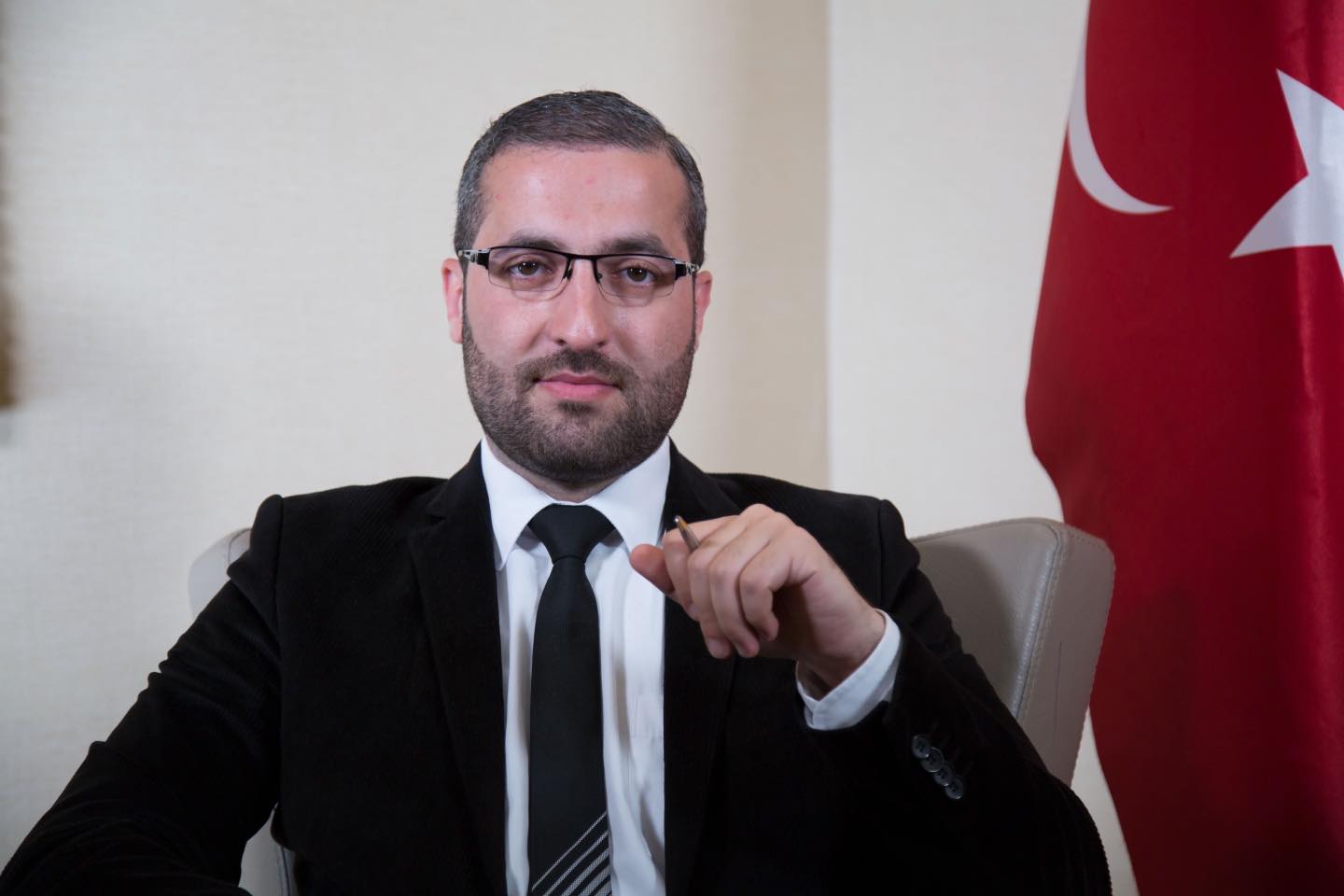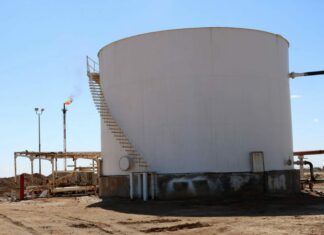An Interview with Hamza Tekin, Specialist in Syrian-Turkish Affairs

As Syria transitions beyond the Assad era, regional alliances are taking shape, with Turkey emerging as a key military partner. Speculation mounts over potential defense agreements between Ankara and Damascus, raising questions about their strategic implications. To explore this pivotal development, Levant 24 (L24) speaks with Hamza Tekin, a Turkish political analyst and expert on Middle Eastern affairs. Tekin has closely followed Turkey’s military strategy and diplomatic efforts in the region, offering insight into the evolving security landscape. In this interview, he discusses the potential benefits of a Turkish-Syrian defense pact, its impact on regional power dynamics, and Israel’s concerns over growing cooperation between the two countries.
_______________________________
L24: How do you assess the potential benefits and risks of Turkey entering into a military cooperation agreement with Syria at this juncture?
Hamza Tekin: “Naturally, there is widespread discussion now, as everyone follows, about the possibility of Turkey and Syria signing a joint defense agreement and other military agreements related to training, armament, and various military needs for both sides. These agreements, expected to be signed successively in the coming days, weeks, and months, will undoubtedly have positive effects on both parties rather than just one. The military and strategic benefits will be for both Turkey and Syria. These are the main points.
“We do not believe or see any risks in the possibility of such an agreement between the two sides. On the contrary, an agreement of this nature between Damascus and Ankara carries many advantages and benefits for both countries. Therefore, the risks are almost non-existent. If we were to talk about risks, they already exist, whether for Syria or Turkey, due to the ongoing security and military tensions in the Middle East.

“Among these risks are the ongoing hostilities, including Israeli attacks on Syria, bombing and targeting civilians at times, escalating aggression at others. As for Turkey, it faces clear threats from multiple parties—security, military, and economic threats. Hence, these risks are already present.
In this context, a strong and long-standing military agreement between Damascus and Ankara would not increase these risks; rather, it would reduce them over time.”
L24: How realistic is military cooperation between Syria and Turkey, and what would it look like if it happens?
Hamza Tekin: “The potential for military cooperation between Turkey and Syria is very high, and the chances of this cooperation materializing are also very high. Today, Syria has moved past its previous regime, with the Syrian people having succeeded in their revolution and progressing step by step politically, economically, and in development, along with other matters.
“Militarily, it is clear that the former [Assad] regime left a significant gap for the Syrian people in this area. Today, Syria undoubtedly needs a strong ally to support it militarily. In my opinion, the military aspect is what preserves the rest of the state’s sectors if it is strong—both militarily and in intelligence. These two aspects are extremely important.
“Therefore, Syria today needs such agreements. It is possible for Syria to sign joint defense agreements, military agreements, and security and intelligence cooperation agreements with multiple countries—not just with Turkey. However, currently, the closest country to Syria that can provide tangible benefits to the Syrian government, the upcoming Syrian army, and the Syrian people in terms of security and military matters is Turkey. That is why everyone is closely watching the possibility of such agreements and cooperation between the two sides. It is expected to take place in a significant and extraordinary manner.

“What I mean is that it will be officially announced in the presence of Turkish President Recep Tayyip Erdoğan at a specific place and time. These agreements—whether military, security, political, cultural, economic, or trade-related—will be signed between Damascus and Ankara. Therefore, the likelihood of such agreements being signed between the two capitals is very high, serving the interests of both parties. Turkey will benefit from them just as much as Syria.
“Turkey will benefit from its military presence, gaining military expertise from Syria through training the Syrian army. It will also benefit from countering the ongoing Israeli aggression against Syria, which indirectly defends Turkey as well. The benefits for both nations are numerous. Turkey always operates on a ‘win-win’ principle, which will certainly be applied here as it has been in other places in the past. This will also apply in Syria, where both Syria and Turkey stand to gain.”
L24: Given Israel’s airstrikes on Syria over Turkish influence concerns, how should Turkey balance its regional strategy with Israel’s interests?
Hamza Tekin: “The Israeli occupation’s airstrikes on Syria are not just about Turkish influence in Syria. The aim is clear: to expand within Syria and exploit the current situation of the Syrian people to further Israeli ambitions in Syrian territories and beyond. This is evident and cannot be hidden. Israeli expansionist ambitions are vast, and the occupation is using these circumstances to bomb and weaken Syria’s new state while seizing more land. This is a blatant and direct aggression against Syria, primarily, and strategically, against the expected alliance between Syria and Turkey.
“If a joint defense agreement and military agreements are reached between Turkey and Syria, they will undoubtedly serve as a major obstacle to Israel’s actions in Syria—whether on land, in the air, or even at sea in the future. Thus, the anticipated military agreement between Damascus and Ankara will undoubtedly stand in the way of Israel’s expansionist ambitions in Syria. According to what is being published and stated by Israeli leaders, their ambitions are not limited to Syria alone—they extend to all neighboring countries of Palestine and possibly even parts of Turkish territory.

“Moreover, Israel has been supporting a terrorist organization in northeastern Syria for many years for two main reasons: to divide Syria and weaken it whenever they wish and to use this organization as a strategic threat against Turkey. They manipulate this group whenever and however they want to target Turkey. This is the reality.
“Therefore, much hope is being placed on the military agreement between Ankara and Damascus to halt these threats.”
L24: If Turkey establishes airbases and trains Syria’s military, what are the implications for Middle East power dynamics, and why is Israel concerned?
Hamza Tekin: “The issue of air defense in Syria—such as deploying Turkish air defense systems in Syria—will undoubtedly be among the top items of discussion between Ankara and Damascus in the coming phase. These air defense systems, established through clear partnership agreements, will certainly contribute to securing Syria’s defense.
“Today, Turkey possesses advanced defense industry capabilities in various fields, especially in air defense. If Turkey signs a joint defense and military agreement with Syria, including agreements on joint defense industries, Turkey will rely on its own capabilities and local expertise rather than on foreign or imported weapons. Turkish weaponry has proven highly successful, with tens of billions of dollars in arms exports annually, gaining international trust.
“Everyone knows how Turkish weaponry, particularly air defense systems, has succeeded in multiple battles over the past five years. Therefore, Turkish air defense systems could have a positive impact in Syria once an agreement is officially signed between Damascus and Ankara.
“Some may ask whether there are concrete steps towards this agreement or if it is merely speculation. The answer is that steps are indeed being taken. There are almost daily military meetings between Turkish and Syrian military leaders to finalize such agreements. These meetings, currently being held away from media attention, will eventually culminate in an official announcement in the presence of the leaders of both countries at a later date.”








